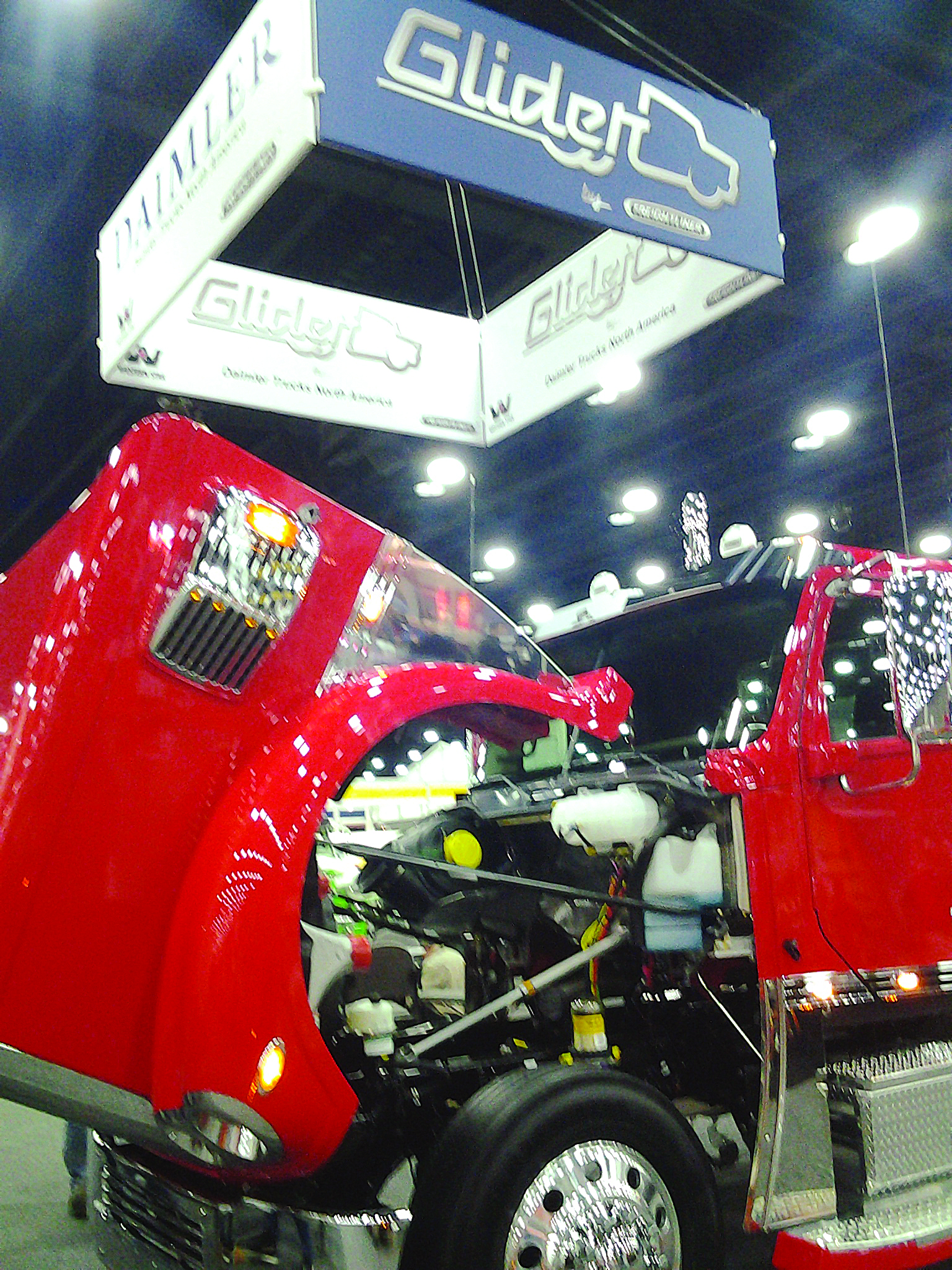Glider Industry May Lose Business Under GHG Plan, EPA, Makers Say
The new federal greenhouse-gas proposal for trucks includes a provision that could reduce the appeal of glider kits if the proposal becomes final.
Glider kits are new heavy-duty trucks without complete powertrains. They lack an engine, a transmission, drive axles or some combination of the three.
The kits usually are completed with either a remanufactured diesel engine or a diesel-natural gas, dual-fuel power plant, making the finished vehicle a combination of new and old parts.
 Bruce Harmon/Transport Topics
Bruce Harmon/Transport TopicsThe Environmental Protection Agency “is proposing to amend our regulations to allow only engines that have been certified to meet current standards to be installed in new glider kits,” the agency said in its rule. EPA would allow an exemption for small businesses, though, which could keep doing glider work at current rates.
The Phase 2 greenhouse-gas rule from EPA and the National Highway Traffic Safety Administration says the use of glider kits has increased by a factor of 10 since the early 2000s, to thousands per year from a few hundred, but the agencies did not provide precise numbers.
Discovery of language on gliders within the massive proposal published June 19 led a Republican member of the U.S. House of Representatives to introduce an amendment that would ban the agencies from enforcing rule changes affecting glider kits.
The amendment by Rep. Diane Black of Tennessee was attached to the fiscal 2016 appropriations bill to fund EPA and the Interior Department. The bill has been stalled and awaits a vote by the full House after passing through the Appropriations Committee.
“Under this ill-advised rule, businesses and drivers that wish to use glider kits would be effectively forced to buy a completely new vehicle instead. Reducing glider sales would also end up limiting consumer choice in the marketplace,” Black said on the House floor.
Much of bringing the glider provision to light came from American Truck Dealers, which sent an e-mail alert to the trade group’s members.
“Some of our dealer members do work in glider conversions and others don’t,” said Laura Perrotta, an ATD lobbyist. She said people in her office looked for glider language in the rule after EPA and NHTSA staff said the subject probably would be included.
Perrotta said she and other ATD personnel still are analyzing the proposal and have not yet come to an official position.
Black said her interest in gliders comes, in part, because Fitzgerald Glider Kits of Byrdstown, Tennessee, is a major employer in her district. She toured the Fitzgerald facility in May.
“Since a glider kit is less expensive than buying a new truck, and can extend the working life of a truck, businesses and drivers with a damaged or older vehicle may choose to purchase one of these kits instead of buying a completely new vehicle,” Black said on the House floor.
“Unfortunately, the EPA is proposing to apply the new Phase 2 standards to glider kits, even though gliders are not really new vehicles,” she said.
The agency said in its rule that it considers gliders to be new vehicles but with older engines.
EPA Deputy Press Secretary Laura Allen took issue with Black’s amendment. “The [Obama administration] has made clear its opposition to policy riders on appropriations bills,” she said.
The fiscal 2016 Interior-EPA funding bill has been held up in the House because of issues that are unrelated to the proposed glider rule.
Heavy-duty truck makers are split on the glider issue.
Four heavy-duty brands in the United States and Canada make the kits: Kenworth Trucks and Peterbilt Motors by Paccar Inc. and Freightliner and Western Star Trucks by Daimler Trucks North America.
Volvo and Mack Trucks within Volvo Group and Navistar International do not make them.
In March, Olof Persson, then the CEO of Volvo Group, spoke at the Mid-America Trucking Show and said his company is opposed to gliders because they keep older, dirtier engines on the road longer. Persson has since left the company, but Volvo has not changed its position.

